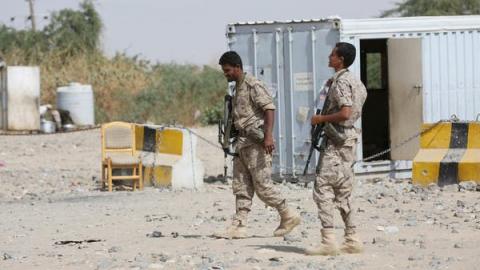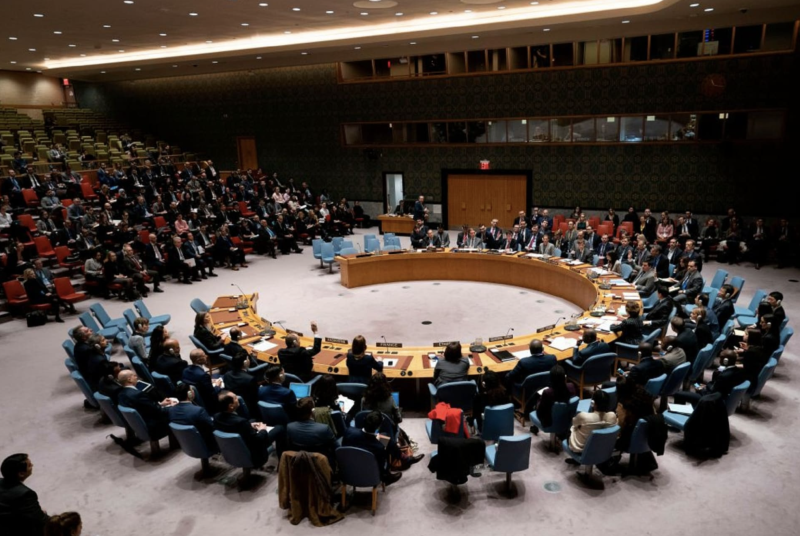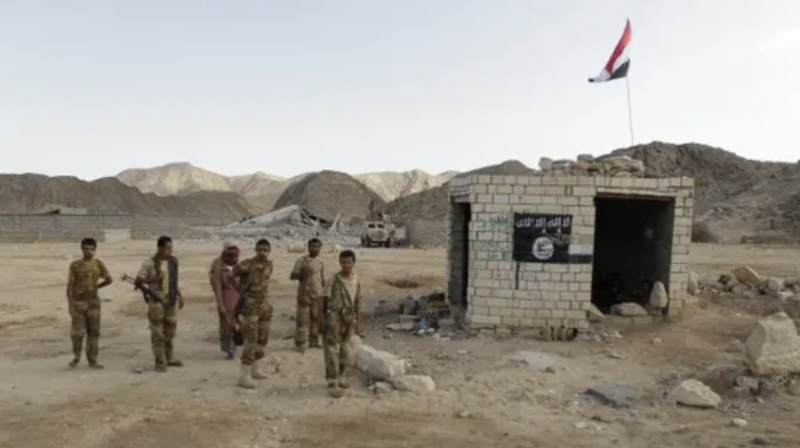Weakened by war and floods, Yemen fights twin health threat


In a crowded street in southern Yemen’s port city of Mukalla, people move between food vendors, buying what they need for iftar, a daily fast-breaking meal eaten during the holy month of Ramadan.
Not far from this market, in the neighbouring town of al-Sheher, Yemen’s first case of COVID-19 was reported on April 10.
Yet, as customers do their shopping in Mukalla, there is no sign of the global coronavirus pandemic.
Nobody keeps their distance and there isn’t a mask in sight. Food sellers handle raw meat, swat at flies and exchange cash without wearing gloves.
Like many locals, Mohammed al-Jumahi, who sells salted fish in the market, is not convinced the virus is a serious threat - despite posters everywhere telling people to practice social distancing and wash their hands.
But if an outbreak were to happen in Mukalla, the capital of the southern province of Hadhramout, he knows his town would be brought to its knees, he said.
“As you can see, if the virus occurs here, it would spread so quickly,” he told the Thomson Reuters Foundation as he sliced fish for a customer using bare hands.
Crippled by civil war, severe food shortages and now a wave of diseases linked to recent heavy rains, Yemen’s shattered healthcare system is being pushed to the brink of collapse by these pressures and the novel coronavirus, health experts warn.
In late April, the separatist Southern Transitional Council (STC) declared self-rule in the country’s south, including Aden, the interim seat of the Saudi-backed government, saying it wanted to take control of efforts to mitigate the damage from floods and curb the coronavirus spread.
Doctors in Aden said the move has worsened Yemen’s problems, setting back a truce between the STC and the internationally recognised government that was meant to focus both sides on ending the conflict with the Iran-aligned Houthi movement.
Yemen has announced 72 confirmed cases of the novel coronavirus and 13 deaths, according to a Reuters tally.
But health experts believe the real number of cases is far higher, given the lack of tracking and testing capabilities in the poorest country in the Arabian Peninsula.
Sources told Reuters this week that there has been apparent under-counting in both the north and south of the country.
“This is only the tip of the iceberg,” said Abdulla Bin Ghouth, professor of community medicine and epidemiology at Hadhramout University’s College of Medicine.
Finding out the true numbers affected requires medical know-how and resources beyond the reach of Yemen’s health system, which depends heavily on international organisations for funding, equipment and staff, he said.
“The capacity of the Yemeni health system ... to carry out active surveillance is so weak,” he said, predicting the country would soon see a sharp rise in COVID-19 cases.
FIGHTING AND FLASH FLOODS
More than five years of fighting between the Houthis, the STC and the government in Aden have left Yemen’s population of 30 million increasingly vulnerable to disease, injury and death.
Since January, intense rain storms and flash floods have created ideal conditions for the spread of mosquito-borne diseases, including dengue fever, putting even more pressure on the country’s fragile healthcare system.
“There has been a surge in the number of fever deaths since the rains,” Farooq Q. Naji, director of the epidemics unit at the government-run al-Jumhuriyah hospital in Aden, told the Thomson Reuters Foundation.
In the past month alone, his hospital has received hundreds of patients with dengue and viral fevers, resulting in dozens of deaths. Before the rains came, he was seeing about three cases a day, he said.
“On the streets, there are still rain swamps mixed with garbage, making them breeding grounds for mosquitoes,” he added.

NewYork -- The United Nations Security Council has urged all parties in Yemen to de-escalate tensions and intensify diplomatic efforts to end the c…

Marib — A senior al-Qaeda commander was killed Tuesday in a suspected U.S. drone strike in Yemen’s northern province of Mareb, accordin…

London — The United Kingdom has announced new sanctions targeting Hussein al-Houthi, son of Abdulmalik al-Houthi, leader of the Houthi militi…